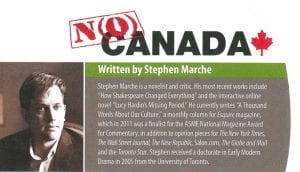Around a month prior to writing this post, we launched our project, “Change My Mind.” In doing so we examined writing, what value we attach to it, and what intent there is behind it. Persuasion is a funny thing. We often find ourselves persuaded without even realizing how. Master persuaders know their audience, know their stats, and most importantly, don’t make it clear that the mind they are writing to, is one they want to change.
Often when I consider opinions, none matter but mine. That’s the typical mindset of your average human being. It goes without saying that not everyone fits that mould, but the vast majority could care less about any opinion that doesn’t compliment their own. Learning to sway an audience enough that they care about your opinion, or dare I say, change theirs, is a valuable thing. The constraints in the case of this project were limited, but the task was still extremely challenging. I’m not a bad writer. I’d go as far as saying not even just an average one for my age. But persuasive writing is a weakness within my academic strength. My mindset in the beginning of this project was to go into this without making it to personal, or I knew it’d be impossible for me to settle on a topic, audience, and mode of writing. Naturally I failed at first, and found myself embracing ideas way to broad for my abilities and the criteria of the project. What it really took was forgetting all the things I’m told I should care about, to figure out what I actually care about. I landed on discussing grades with one of my peers after the realization that the our individual views on grades are tremendously different.

Launch activity
In order to write persuasively, and manage to persuade, there are techniques to consider that might not cross your mind. The 6+1 traits were introduced to us with that title in the beginning of this project. The goal of having them as a resource was to improve our writing in the areas the traits suggest. How your voice and tone comes through in your writing, what the words your choose emphasize in your writing, the rhythm and flow of your sentences, the way you send your message. These traits (and more) contribute to better writing in any form. Applying this idea to my persuasive writing was easy at first, but once I got a deeper read on my audience in interview form, I found it difficult to revise how I implemented some of the ideas.

6+1 Traits
My first draft was terrible. I’ll admit that’s mostly me being hard on myself, but even during peer critique it became more and more clear that there was a lot missing. I had keened in on the pathos of my subject and accidentally made the entire piece about myself, or rather my opinion. This reminded me of one of the essays we read in class, “No Canada”, written by Stephen Marche. The essay was about the change in the Canadian national anthem. I found that the piece was deceiving in that it was easy to follow his ideas, but difficult to decipher what his point actually was. As I revised my piece I found that it read in a similar way. Having gotten carried away with my own ideas instead of appealing to my audience.

“No Canada”
On the note of audience, I am confident now that the next time I’m faced with a persuasive writing assignment, I will find and learn my audience quicker. What really lead to my initial draft being so heavy in certain areas, was my lack of understanding of my audience opinion on the matter. I had made assumptions prior to interviewing her and based my piece on them. My biggest takeaway from this project is that learning your audience is more beneficial than any other preparations you can make in terms of persuasive writing. If you don’t know your audience and understand their opinion, you have no argument. If I were to do it over again, I’d have been far more prepared in my interview, and probed further with clarifying questions. Although my interview was not strong, I still managed to formulate a solid argument, mostly because my topic was something I’ve been arguing to my friends for months now. That advantage aside, it was honestly difficult to balance the two contrasting idea’s using just pathos. I tend to rely on an emotional tone in my writing, but that just wasn’t going to work in this case. Instead I did a hefty amount of research on the topic, and to no surprise I found tons of information that swayed my audience in the end.
Ultimately this project had a major learning curve. I’ve been working towards enhancing my skills as a writer throughout this school year, and having yet to attempt a persuasive piece made this a challenge. I appreciate projects where there are a lack of constraints because it allows for so much more creative freedom. That being said there is a solid difference between project limits and project guidance. I felt that I could’ve asked for more guidance from both my peers and teacher in regards to critique. I enjoyed this project for many reasons, but above all was the class participation we had during readings and analysis. “A War On Second Chances”, by Sean Fine, and “The Writer’s Responsibility”, from Margaret Atwood, were my personal favourites. The discussions sparked by those two pieces were fantastic and full of useful material to be revisited at a later date.
Now I’m not 100% confident that I changed my audiences mind, but she did ensure me that I held a strong argument and knew exactly what she needed to hear once I’d done my research. I hope that she considers my argument further, but for now I’m glad that I was able to practice the skills to persuade.